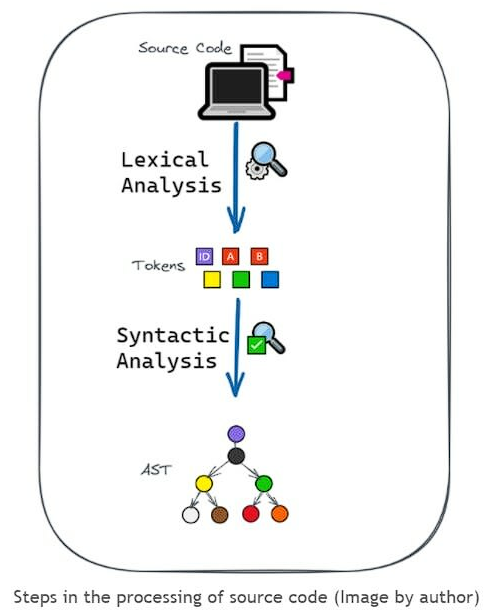How does the compiler make sense of my code?
The information is gathered from this link

During my implementation of the Shunting yard algorithm, I used tokens to split the function expression into operators, numbers, functions, etc..
The steps involved in the picture above are:
- The source code is first split into smaller chunks called
tokens. - The tokens are then parsed into a tree called the syntax tree by the
parser.
For example, this is how I declared the tokens inside my token.hpp:
enum TokenType { NUMBER, VARIABLE, OPERATOR, FUNCTION, LEFT_PARAN, RIGHT_PARAN};
struct TokenData{
TokenType type;
std::string value;
TokenData(TokenType t, const std::string &expr): type(t), value(expr) {}
};An
Abstract Syntax Treeis an intermediate representation of source code as a tree structure.One case of this is the
Binary Treewhich is simply a tree where a node can not have more than 2 children. In this case, the nodes would beoperatorsand the leaves would beoperands.
So I will:
- Parse the RPN (Reverse Polish Notation) into a tree structure where each node represents an operation (add, multiply, sin, cos..),
- Traverse the AST and apply differentiation rules recursively,
- Simplify the result,
- Evaluate the Derivative.